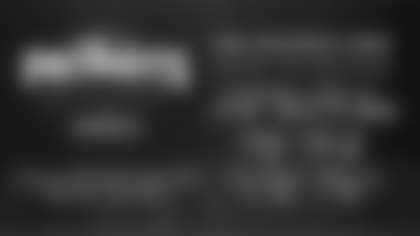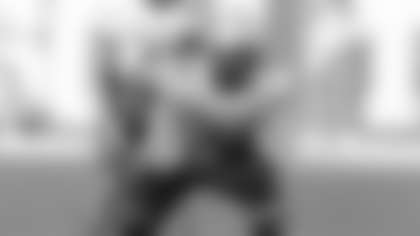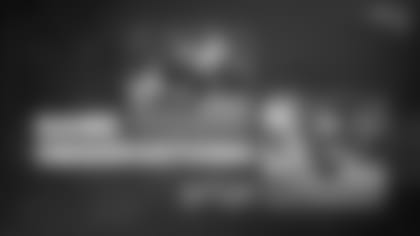Gillette Stadium – The beauty and beast of professional sports is that you're never fully prepared for every possible outcome.
On Monday Night Football at Gillette Stadium, New England was shockingly dominated by an inferior Bears team in a 33-14 victory over the heavily favored Patriots.
The first stunner of the night was head coach Bill Belichick playing two quarterbacks. Mac Jones started the game, but following two punts and an ugly interception in three drives, he didn't see the field again. Jones was returning from a high-ankle sprain following a three-game absence but looked uncomfortable in the pocket and was making poor decisions.
With the crowd chanting for the rookie, Belichick turned to Bailey Zappe, who immediately led back-to-back touchdown drives. At first, it looked like the Pats captured lightning in a bottle. However, they would not score again as Chicago rattled off 23 unanswered points.
Although the Patriots defense needs to take a big piece of the blame pie, the Pats played like an offense that was leaderless as uncertainty grew around the quarterback position and have once again shown they're incapable of coming from behind on the scoreboard.
Over the last two seasons, New England is now 0-9 when the opponent scores more than 25 points, while they're 13-3 when they control the game and play from ahead. Frontrunners.
Allowing the 31st-ranked Bears offense in Football Outsiders' DVOA metric to score 33 points with a 55% success rate is not how this team wins, but the script doesn't always go as planned.
Eventually, the Pats offense, whether it's with Mac or Zappe, must overcome deficits. And by pulling Jones after three drives, Belichick brought the ongoing media-led QB controversy right to his doorstep.
The sentiment around the locker room was that nobody knew who was starting at quarterback, including Bailey Zappe, until we all found out before kickoff. However, Jones confirmed that he was aware that both quarterbacks would play.
Patriots head coach Bill Belichick said the plan heading in was to platoon the quarterbacks, and Jones wasn't benched due to performance. Belichick added that Jones would have returned to the game if the score didn't get out of hand, and he doesn't plan on having a platoon system moving forward.
New England needs to pick a path at quarterback and stick with it. Not for the fans. Not for the media stirring up controversy. But for the 52 other players in the locker room who are looking for a leader.
Here are eight observations as the Patriots fall to 3-4 on the season with a loss on Monday night:
1. Play of the Game Powered by Enel: Jakobi Meyers's 30-Yard TD From QB Bailey Zappe
The Pats had a brief lead when Zappe entered the game, and it felt like the train was back on the tracks thanks to a game-planned play design.
"That was one of the plays I was excited to get called in the game. I was really hoping that it would get called, and it got called in the perfect situation," Meyers told Patriots.com. "That's all the coaches, honestly. I just had to go out there and make the catch."
New England dialed up a design that most coaches call "leak" on the play. By pairing the "leak" route with a post-crosser combination, the Pats built a complement to a staple play they've constantly been running with Zappe over the last four games. Chicago was all over the two anticipated downfield routes but lost Meyers in the pile of bodies near the line of scrimmage, and the Pats wideout was all alone for six.
Kudos to the coaching staff for adding a wrinkle to one of their staple plays that produced the play of the game.
2. Patriots Run Defense Looks Unprepared for Bears Rushing Attack
"It's hard to win in this league when you can't stop the run," cornerback Jonathan Jones said shortly after New England's loss on Monday night.
After two strong showings against elite rush offenses, the dam broke on New England's defense, with the Bears rushing for 243 yards and a 56% success rate on 45 attempts. As DT Davon Godchaux explained following the game, the run defense struggled with the designed quarterback run game featuring Bears QB Justin Fields as it did in Week 3 vs. the Ravens.
To the Bears credit, they hadn't run Fields much on designed play heading into Week 7. Chicago's coaching staff had to begin incorporating Fields' legs more, and they also must've seen that they could exploit the Patriots defense on the ground.
"They attacked us in the quarterback run game kind of like Baltimore did. Showed us some repeat plays that kind of beat us in the past," Godchaux said. "That's what our defense is struggling with. Quarterback runs are killing us right now."
The play that gave the Patriots the most problems was a designed quarterback sweep where the Bears emptied the backfield and relied on Fields to provide them with a numbers advantage. From there, it's blocked like any pin-pull or outside zone play, but the QB is the ball carrier.
Chicago also incorporated zone-read plays where Fields made post-snap decisions to keep or hand the ball off to the back, while there were a few RPOs sprinkled in there.
Although dynamic runners such as Fields don't grow on trees, it's a copycat league, and other teams will try to exploit the weakness in the Patriots run defense until they stop them.
3. Patriots QB Mac Jones's Poor Decision-Making Under Pressure Continues
Finding any major takeaways from three series and nine drop-backs will be difficult, especially without the benefit of review. But one thing is crystal clear about Jones's regression in his second season: his decision-making process while under pressure is broken.
In 120 drop-backs this season, the second-year quarterback now has four interceptions and five turnover-worthy plays while under pressure. In his entire rookie season, Jones only threw four interceptions with six turnover-worthy plays with pressure. Decisions like his second-quarter interception (above) were not present in his rookie campaign, and Mac is now trending towards being one of the worst passers in the NFL while under pressure in year two.
With Belichick suggesting that the team will pick a starting quarterback and stick with that signal-caller, the likelihood that it's Jones's seems high. But he needs to recalibrate here quickly.
4. #ZappeFever Fizzles Out as Rookie Quarterback's Limitations Show Up
Although Zappe recaptured the magic on back-to-back scoring drives, the game quickly got away from the young QB when the Patriots fell behind again.
Zappe entered the game and made two aggressive-minded decisions to complete passes downfield, including a well-placed jump ball to DeVante Parker down the left sideline. With the defense in man coverage with a single-high safety, the rookie gave Parker a chance to elevate above the defender and make a terrific contested catch.
However, as the game got away from the Patriots, the training wheels needed to come off for Zappe to lead a comeback. When you fall behind, play-action becomes a non-factor since defenses are willing to concede the run. Once it became a traditional drop-back passing game, we saw four tipped passes at the line, two interceptions, and a few tighter-window opportunities downfield that Zappe didn't have the velocity to fit the ball into open receivers by NFL standards.
To make a case for the first-year QB as the long-term starter, Zappe didn't make the same head-scratching decisions as Jones and had the right idea on most throws. But when the coaching staff can't hide his warts with play-calling, you see his limitations emerge.
5. Bears QB Justin Fields's Scrambling Ability Disrupts Patriots Pass Defense
Another takeaway from speaking to players after the game was that Fields's scrambling ability caused breakdowns in New England's pass-rush plan and made the pass-rush timid.
"A guy like that just destroyed the whole third-down defense. Some guys had a good rush but are almost scared to rush now because this guy is going to break down and run the ball to get a first down," Godchaux said.
Patriots top pass-rusher Matthew Judon also described the Pats pass rush as "timid" because of Fields's athleticism's effect on the game.
As we see too often in matchups against mobile quarterbacks, the Patriots played most of the game in zone coverage to keep all 11 defenders' eyes on the quarterback in case Fields took off running. However, with the four-man pass rush afraid to pin their ears back, it leads to too many instances where Fields and other running QBs have all day to throw.
Even limited downfield passers such as Fields can complete passes from clean pockets, and that's what the Bears quarterback did in his best game of the 2022 season.
6. Patriots Offensive Line, Run Game Struggles in Monday Night's Loss
We'll get a better look at the issues up front in After Further Review. But, stating the obvious, the offensive line didn't do its part in opening up rushing lanes for the Pats RB duo, while left tackle Trent Brown's four penalties were backbreakers. Speaking after the game, right guard Mike Onwenu said the Pats are seeing more loaded boxes, and teams are game-planning to stop the run more frequently as of late. Although that's opened up play-action passes, New England's rushing attack is too important to their overall team success to generate a 33% success rate (33rd percentile). Whether it's passing teams out of stacked boxes or finding ways to run the ball while teams are attacking the line of scrimmage, the Patriots need to find answers. Shifting to Marcus Cannon as the starting right tackle over an injured Isaiah Wynn was the least of the worries, which might be a silver lining moving forward.
7. What is Wrong With Patriots P Jake Baily as Struggles Continues
After signing a three-year extension in training camp, the Pats need the All-Pro version of their punter back. Although we aren't punting experts here, punter Jake Bailey's issues are going on for two years now. The weather conditions played a factor with both teams on punts and kickoffs. But Bailey's net average of 40 yards and line drive punts make it difficult for the Patriots punt coverage unit to flip field position.
8. Patriots LB Anfernee Jennings a Bright Spot in Disappointing Loss
If you're looking for positives, the third-year linebacker made a noticeable impact in the pass rush and set a firm edge against the run. Jennings started to come on in training camp and has been solid for New England's defense this season. In his season debut, veteran LB Jamie Collins had a role in the Pats base defense as an edge rusher, which didn't have Pro Bowler Matthew Judon in the base package. Although the Pats might like the edge discipline from Collins and Jennings, they don't have the luxury of making Judon a more situational player. They need their best playmakers on the field, and he's arguably their best overall player.
9. Patriots Lose S Kyle Dugger (ankle) & C David Andrews (head) to Injuries
We'll head into a quick turnaround for the Patriots monitoring two key injuries from tonight's game. Dugger was spotted with a sleeve on his left ankle and a noticeable limp in the locker room, while Andrews left the game after a dirty illegal blindside block by Bears DT Mike Pennel on an interception return. If Andrews misses games with a concussion, the Pats would likely turn to veteran James Ferentz at center.






































